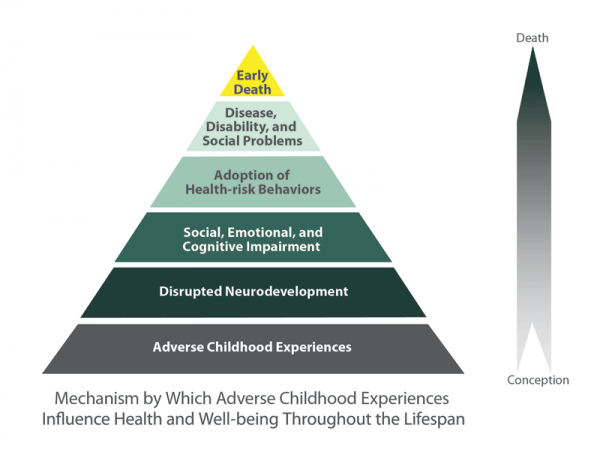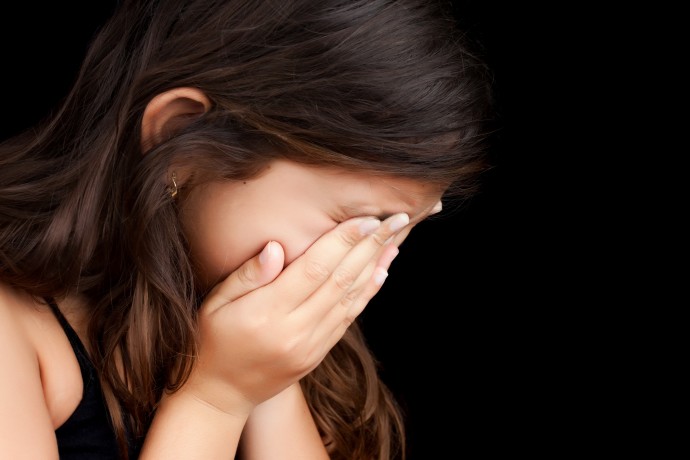“Ah, you know, the kids are young, they’re very resilient, they don’t know what’s going on – they won’t remember, anyway,” the narrator says at the opening of the award-winning documentary “Resilience: The Biology of Stress and the Science of Hope. “Well, the child may not remember, but the body remembers.”
The documentary shows “Resilience” is about the impact of what’s called Adverse Childhood Experiences or ACEs which refer to episodes of trauma, neglect or extreme stress which can have a long-term impact linked to: –
• risky health behaviours,
• chronic health conditions,
• relationships
• low life potential, and
• early death.

ACEs are measured using a score-based system – the higher number of ACEs a person has, the more risk there is that they will develop psychological problems, health issues or suffer from addiction and social exclusion.
The Division of Violence Prevention at the Centers for Disease Control and Prevention (CDC), in partnership with Kaiser Permanente, conducted a landmark ACE study from 1995 to 1997 with more than 17,000 participants.
Based on one study, around two of three children experience physical violence, six of 10 experience psychological violence, and 17 percent experience sexual violence. Two out of three also experience bullying of any form or have witnessed psychological violence at home; and four out of 10 suffer cyber violence.
The study examined the health histories of participants and followed them over time to monitor health outcomes. Researchers discovered that the higher ACE scores people had, the greater their chances of developing any number of health problems. People with ACE scores of 4, for example, had double the risk of heart disease and double the risk for cancer. The study also found that those with ACE scores of 6 died, on average, 20 years earlier than those with lower ACE scores.
However, it’s important to note that, as is pointed out in the documentary “Resilience,” a high individual ACE score is not reward set in stone.
The experts said that children should be allowed to fail sometimes, and to encounter challenges, but not to the point of traumatizing them emotionally and mentally that could leave indelible scars in their minds.



Comments